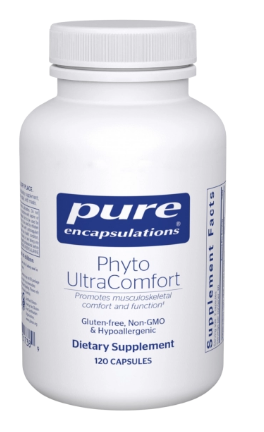Willow bark has a long history of traditional use for reducing minor pain. Several randomized human trials illustrate its ability to do so primarily through the actions of salicin, a source of salicylic acid. Additionally, it helps to maintain healthy prostaglandin metabolism and blood flow. Boswellia serrata has also revealed the potential to provide statistically significant support for reducing mild pain. AKBA, or 3-acetyl-11-keto-beta-boswellic acid, may be particularly supportive in maintaining healthy 5-lipoxygenase enzyme activity and leukotriene metabolism to maintain tissue comfort. Curcumin maintains healthy cyclooxygenase-2 enzyme activity while supporting healthy prostaglandin, leukotriene and thromboxane metabolism. Its ability to maintain a healthy inflammatory response has also been attributed to regulation of nitric oxide release. Devil's claw promotes both healthy cyclooxygenase-2 and 5-lipoxygenase enzyme activity. A review of 12 human studies indicates that devil's claw may reduce mild pain to promote musculoskeletal comfort and function. dl-Phenylalanine supports enkephalin activity, which impacts pain receptive neurons.



